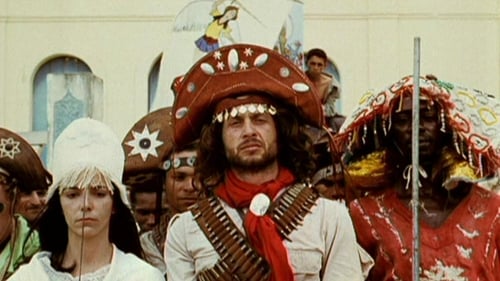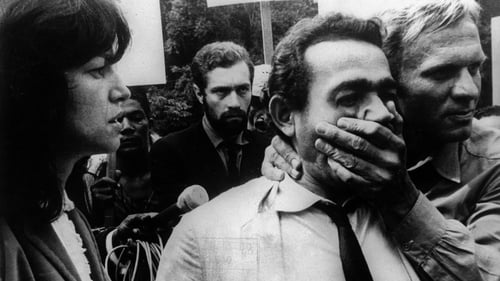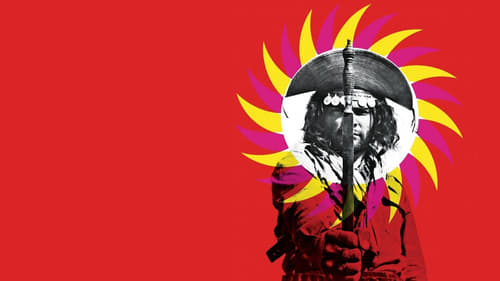
Director

Director

Writer
The painter Tino, in professional and political crisis, receives a telegram from his mother-in-law, Selma, announcing her return from Europe. After his wife's death, Tino continues living with Selma, with whom he had ambiguous relations, which he now wants to sever. Weak at this impossible love, he asks the maid Enedina to lock him in his room. There, he revives memories through letters, notes and photographs. Selma's son João is waiting for her at the airport and dreams of loving fulfillment in his own mother's arms.

Director
The painter Tino, in professional and political crisis, receives a telegram from his mother-in-law, Selma, announcing her return from Europe. After his wife's death, Tino continues living with Selma, with whom he had ambiguous relations, which he now wants to sever. Weak at this impossible love, he asks the maid Enedina to lock him in his room. There, he revives memories through letters, notes and photographs. Selma's son João is waiting for her at the airport and dreams of loving fulfillment in his own mother's arms.

Director

Screenplay
Life on the Jaramataia farm in the interior of Paraíba and the relations between the cowboys and the owners of the land.

Director
Life on the Jaramataia farm in the interior of Paraíba and the relations between the cowboys and the owners of the land.

Writer

Director

Writer

Director

Writer
A vision of the different forms of handicraft production in the interior of Paraíba.

Director
A vision of the different forms of handicraft production in the interior of Paraíba.

Director

Director

Director
In the interior of Paraíba a tournament between cowboys who must demonstrate mastery in knocking an ox down by the tail while they ride.

Set Decoration
Это история Антонио Мортеса, известного убийцы, нанятого богатыми землевладельцами, чтобы устранить лидеров крестьянского восстания.

Director
In the late 1960s, Thomas Farkas imported equipment suitable for direct sound, and released a collection of documentaries called "Brasil Verdade" ("True Brazil"), after the Military Coup d'État took place in Brazil, which happened without any popular resistance or revolution or reaction of the society. The five short films are directly related to this fact and its consequences to the country.

Screenplay
In the village of Leva-e-Traz, the discovery of a oil field is responsible for a mass evasion of the townspeople. Left are the old and incapable for the extraction job. When the local priest announces he, too, is leaving the town, Satan emerge thrilled with the chance of overtaking the place.

Director
In the village of Leva-e-Traz, the discovery of a oil field is responsible for a mass evasion of the townspeople. Left are the old and incapable for the extraction job. When the local priest announces he, too, is leaving the town, Satan emerge thrilled with the chance of overtaking the place.

Costume Design
Главный герой Пауль Мартинс, анархист и идеалист, по профессии — журналист, пишущий стихи, борется против популистского губернатора и консервативного президента Порфирия Диаса. В этом его поддерживают революционные силы. Мартинс мучается, так как эти два коррумпированных политических деятеля были в прошлом его друзьями, и были избраны при его моральной поддержке.

Art Direction
Главный герой Пауль Мартинс, анархист и идеалист, по профессии — журналист, пишущий стихи, борется против популистского губернатора и консервативного президента Порфирия Диаса. В этом его поддерживают революционные силы. Мартинс мучается, так как эти два коррумпированных политических деятеля были в прошлом его друзьями, и были избраны при его моральной поддержке.

Narrador
On the dry ground of the caatinga and on the rocky slopes of the sertão, the goat survives. Organic parts of the country landscape, linked to the economy of certain regions, provide milk, meat and skin for export.

Narrator
The origins of "cangaço", armed brigands in the Northeast between 1935 and 1939, interviews with some survivors of the fighting, police and outlaws movement. Interspersed with testimonials, authentic sequences of films made in 1936 by Benjamin Abraham, an Arab peddler who managed to film the famous band of Virgulino Ferreira da Silva, the "Lampião".

Director
The origins of "cangaço", armed brigands in the Northeast between 1935 and 1939, interviews with some survivors of the fighting, police and outlaws movement. Interspersed with testimonials, authentic sequences of films made in 1936 by Benjamin Abraham, an Arab peddler who managed to film the famous band of Virgulino Ferreira da Silva, the "Lampião".

Costume Design
Герои картины, Мануэль и Роза, крестьяне, сначала, сбегая от нищеты, примыкают к проповеднику, но, отшатнувшись, по причине его жестокости, присоединяются к отряду разбойников — кангасейру Кориско, но и здесь не находят счастья.

Art Direction
Герои картины, Мануэль и Роза, крестьяне, сначала, сбегая от нищеты, примыкают к проповеднику, но, отшатнувшись, по причине его жестокости, присоединяются к отряду разбойников — кангасейру Кориско, но и здесь не находят счастья.

Writer
Герои картины, Мануэль и Роза, крестьяне, сначала, сбегая от нищеты, примыкают к проповеднику, но, отшатнувшись, по причине его жестокости, присоединяются к отряду разбойников — кангасейру Кориско, но и здесь не находят счастья.

Writer
The life of a runaway slave who founded the Quilombo dos Palmares, an outlaw community of Brazilian slaves.
















